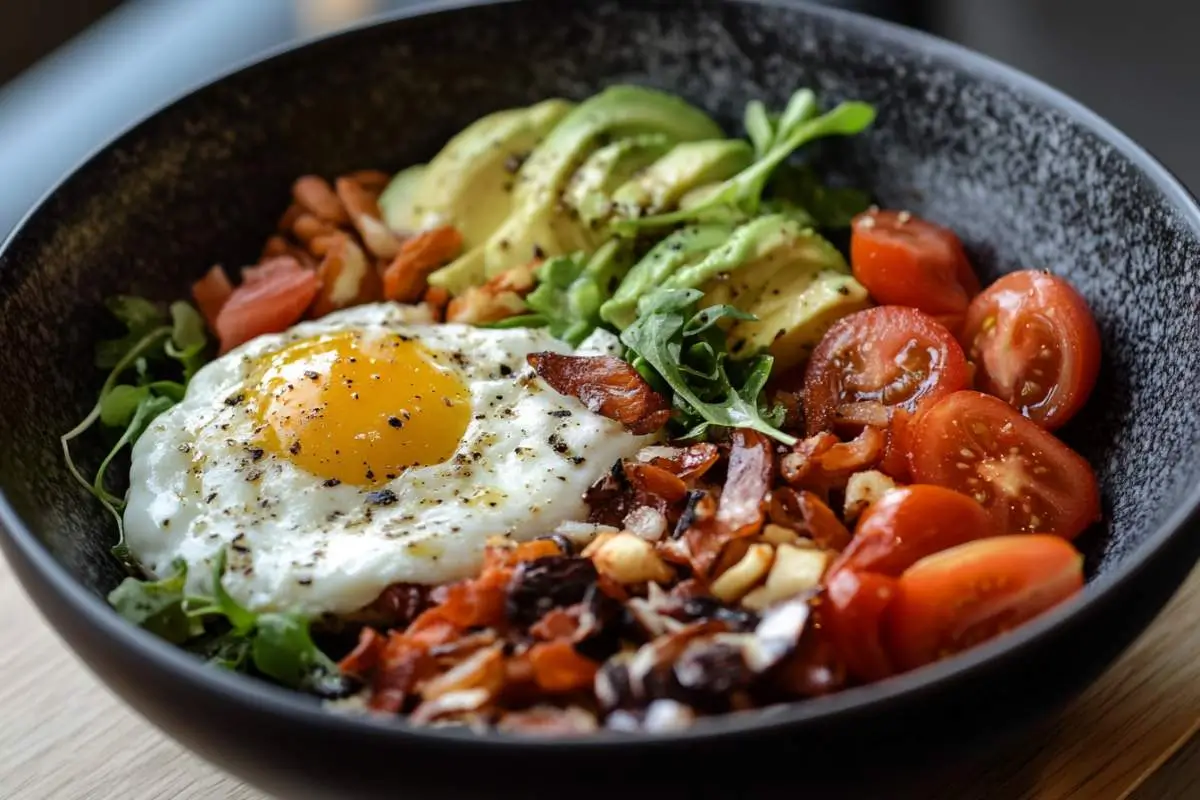Have you wondered how many calories should breakfast be to truly fuel your day? When the sun rises, your first meal is key to your energy and health. Breakfast is more than a routine; it's essential for a healthy life...It gives you the energy to start the day strong...
We'll look at what affects your daily calorie needs and breakfast guidelines...
We'll also talk about the benefits of choosing nutrient-rich foods for breakfast...
Whether you want to lose weight, stay energized, or just feel good, the right breakfast matters a lot.
Understanding Daily Caloric Needs

Your daily calorie needs depend on several factors. These include your age, gender, weight, height, and how active you are.
Knowing these factors is key to managing your weight and staying healthy.
Factors Influencing Caloric Needs
Your resting metabolic rate (RMR) is important. It's the calories your body burns when you're not moving. Also, how much energy you use each day affects your calorie needs. This includes exercise or just being active.
Weight Goals and Activity Level
What you want to achieve with your weight also matters...
If you’re trying to lose weight, cutting back on calories can help—but it’s just as important to focus on nutrient quality.
If you want to gain weight, you might need more.
Your activity level is also crucial. More active people need more calories than those who are less active.
Age Group | Female Calorie Needs | Male Calorie Needs |
|---|---|---|
19-30 years | 2,000-2,400 calories | 2,400-3,000 calories |
31-60 years | 1,600-2,200 calories | 2,200-3,000 calories |
61 years and older | 1,600-2,000 calories | 2,000-2,600 calories |
These calorie ranges are based on the 2020-2025 Dietary Guidelines for Americans.
They can help you start figuring out your daily calorie needs. But, it's best to talk to a healthcare professional or a registered dietitian. They can help tailor your calorie intake to fit your body and lifestyle.
The brain uses about 20% of the energy from food we eat.
By understanding what affects your daily calorie needs, you can make better choices about what you eat and how you exercise. This helps you reach your weight management goals and stay healthy.
General Calorie Guidelines for Breakfast
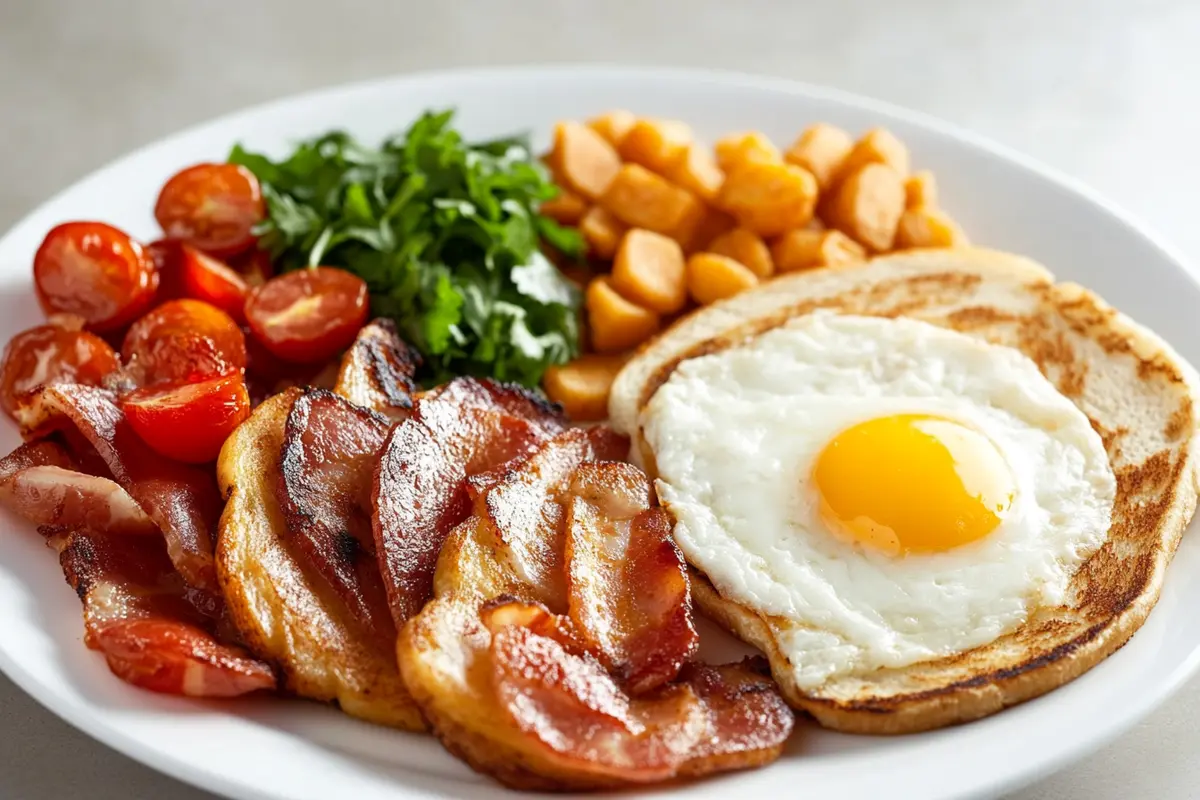
Finding the right calorie range for breakfast is key for energy and health.
Most people need 300-500 calories for breakfast, which is about 20-25% of a 2,000-calorie diet.
Your calorie needs can change based on your goals and activity. If you're trying to lose weight, aim for 300-400 calories.
If you're very active, you might need 500 calories to start your day.
It's important to choose nutrient-rich foods for breakfast.
Foods high in proteins, complex carbohydrates, and healthy fats give you energy and support your health. Eating a balanced breakfast can keep you sharp and energized all day long.
Eating a balanced, nutrient-rich breakfast is one of the best ways to start your day on the right foot. It can help you maintain steady energy levels, support a healthy metabolism, and even aid in weight management.
Remember, these calorie ranges are just a guide.
Your body's needs might be different.
Take time to experiment and find the breakfast options that truly make you feel your best.
Everyone’s body is different, so it’s all about listening to what your body needs.
Breakfast Calories for Weight Loss
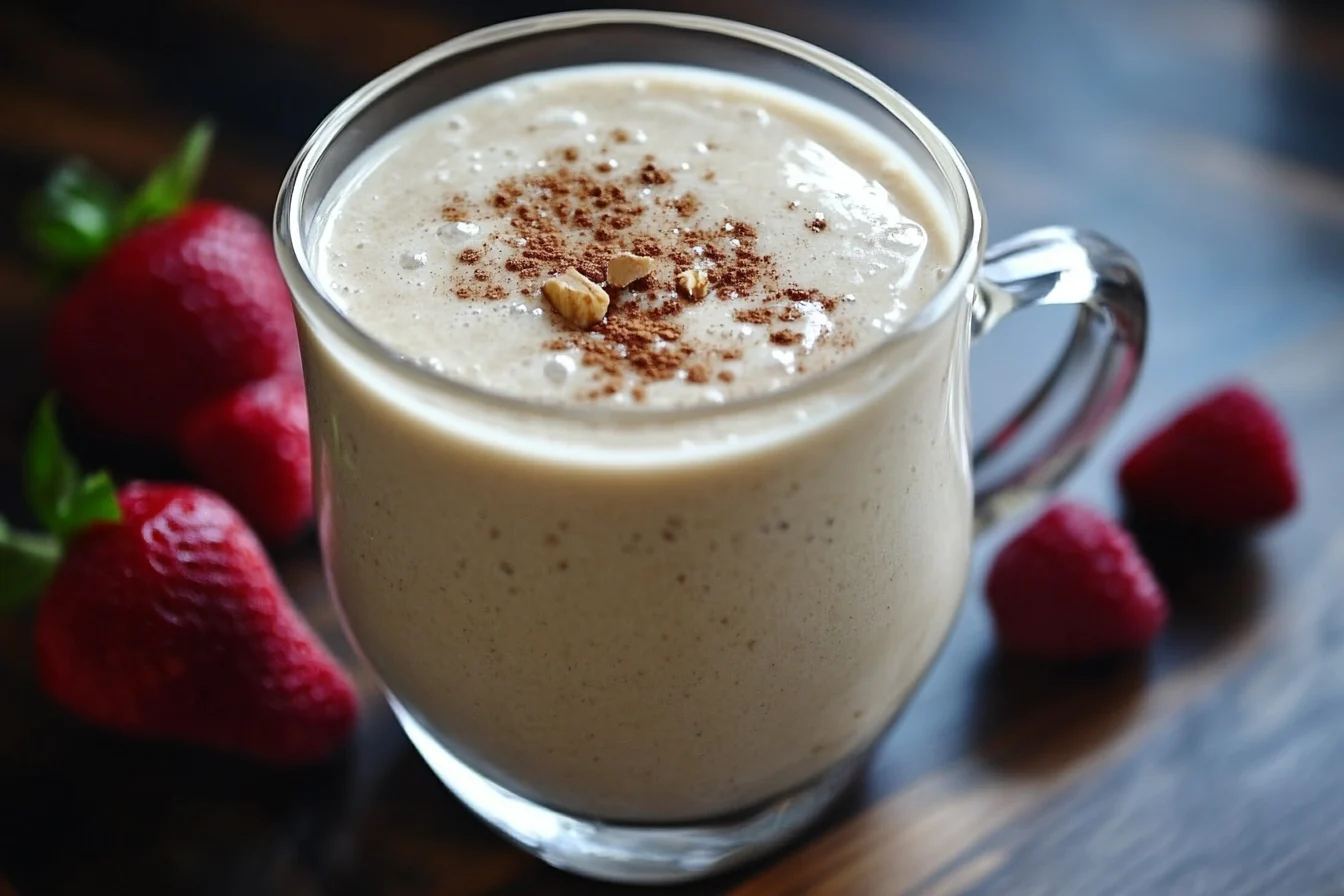
For those trying to lose weight, a good breakfast has 300 to 500 calories.
This helps you eat fewer calories and gives you the nutrients and energy you need to start your day. A balanced breakfast with protein, complex carbs, and healthy fats keeps you full and helps with weight loss.
The 300-500 Calorie Range
Females should aim for a breakfast under 400 calories to lose weight.
Males and active females can have 450 to 500 calories.
It's important to eat at least 20 grams of protein and 5 grams of fiber for breakfast.
Also, add 100-150 calories of healthy fats.
And choose whole-grain sprouted bread or oatmeal for carbs to keep your blood sugar stable.
Avoid breakfasts with added sugars, like bagels or cereal, as they can cause energy crashes.
Studies have shown that people who eat breakfast regularly tend to enjoy better health overall.
If you're also exercising, aim for 350 to 400 calories in your breakfast.
The best breakfast has 50% carbs, 25% protein, and 25% fiber.
A well-rounded breakfast can help you feel full and energized until lunch.
For a great weight-loss breakfast, the key is balance. A mix of the right nutrients helps you stay focused and energized throughout the day.
The secret to a great weight loss breakfast is finding the right balance. It should satisfy your hunger, give you energy, and help you eat fewer calories.
Benefits of Eating Breakfast
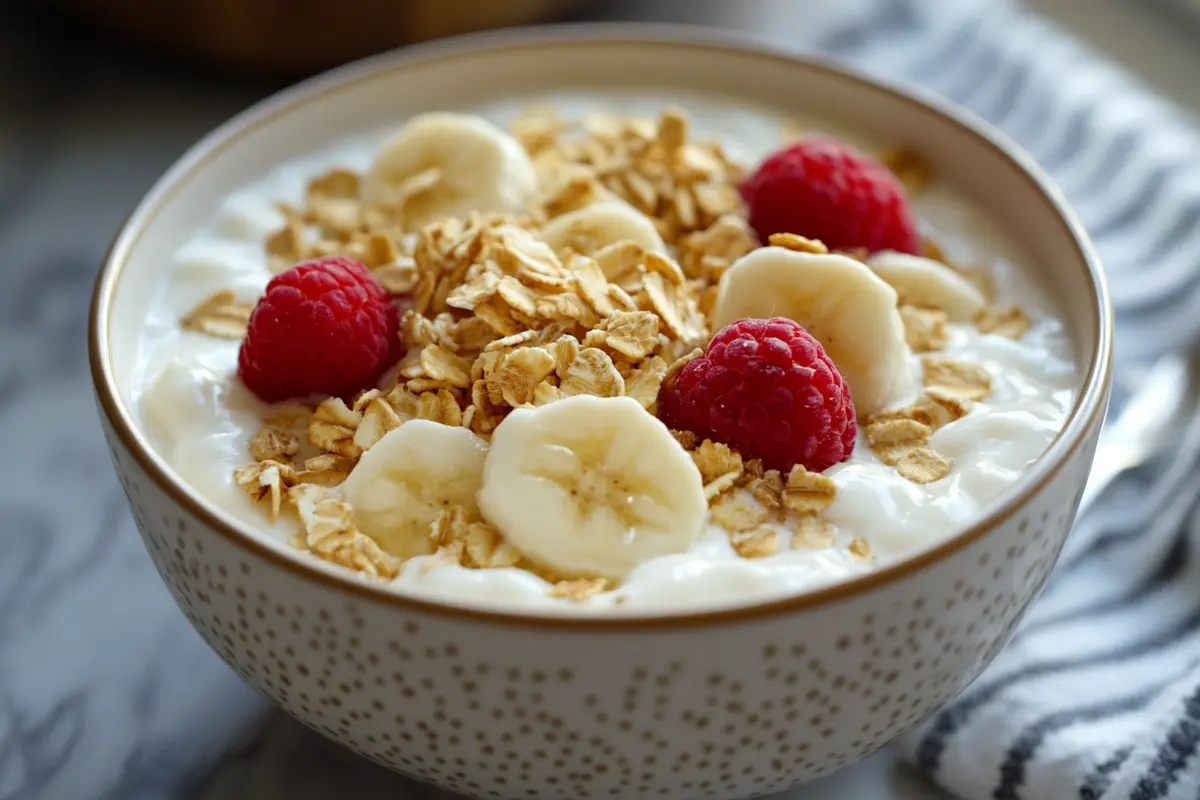
Many studies show that eating a healthy breakfast is good for you.
People who eat breakfast get more vitamins, minerals, and fiber.
They also have better cardiovascular health, which means less risk of diabetes, obesity, high blood pressure, and strokes.
Improved Nutrient Intake
Eating breakfast is a smart way to start your day. It helps you get more vitamins, minerals, and fiber. This keeps your body working well.
Better Cardiovascular Health
Breakfast is also good for your heart. Studies show that regular breakfast eaters are less likely to get heart diseases.
Eating a healthy breakfast can help keep your heart healthy.
Skipping breakfast, on the other hand, has been linked to a higher risk of issues like obesity, type 2 diabetes, and heart disease.
The benefits of breakfast are clear.
It improves nutrient intake and heart health.
So, make breakfast a priority for better health.
Balancing Macronutrients at Breakfast
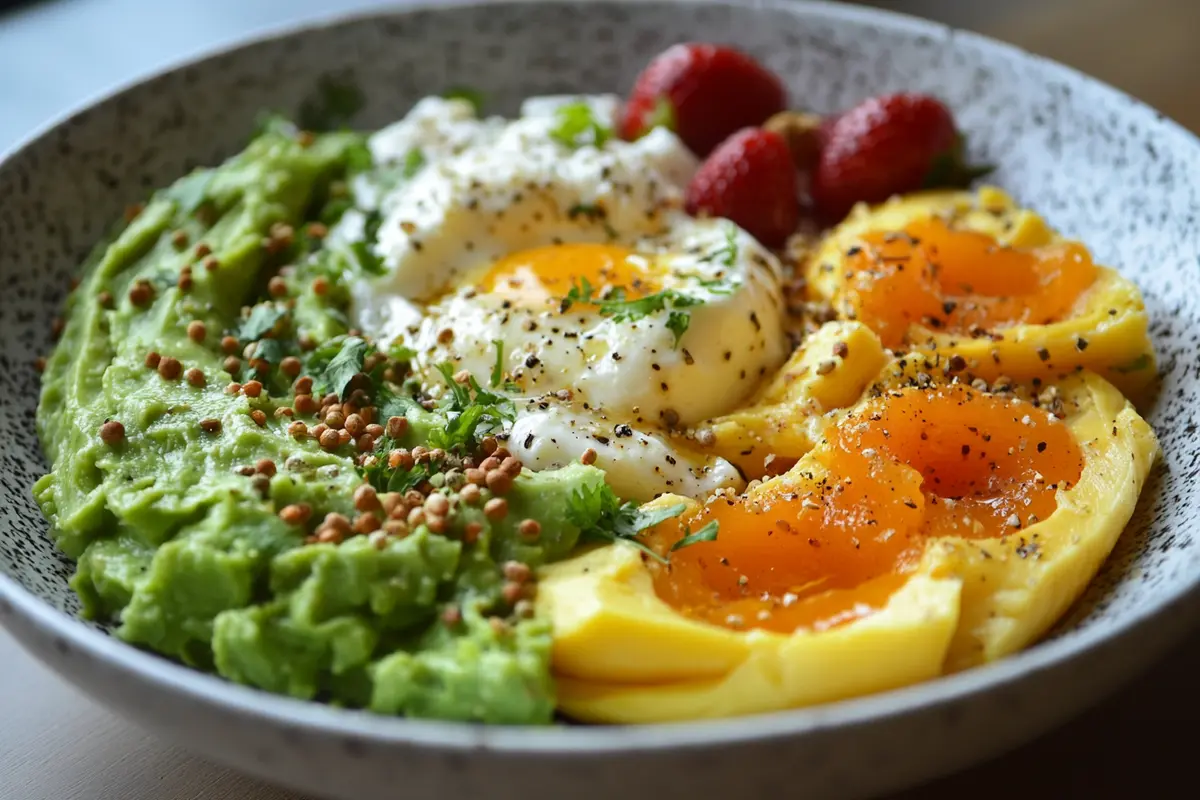
To make a nutritious breakfast, mix protein, carbs, and healthy fats. This mix boosts energy and keeps you full in the morning.
Incorporating Protein, Carbs, and Fats
Start with protein-rich foods like eggs, Greek yogurt, or krill meat. They help you feel full and support muscle repair. Add complex carbs like whole-grain breads or oatmeal for lasting energy.
Healthy fats from avocado or nuts make meals more satisfying and help absorb nutrients.
Experts say a healthy balanced breakfast should have:
For a 2,000 calorie diet, this means:
Age Group | Female Calorie Needs | Male Calorie Needs |
|---|---|---|
Protein | 50 to 175 g | 200 to 700 kCal |
Carbohydrates | 225 to 325 g | 900 to 1,300 kCal |
Fats | 44 to 78 g | 400 to 700 kCal |
The best macronutrient balance for breakfast macronutrients depends on your gender, age, size, body type, and activity level.
So, Try different ratios to find the perfect balanced breakfast for you.
High-protein breakfasts can help you feel fuller for longer and may even encourage more fat burn compared to low-protein meals.
Breakfast Ideas for Different Calorie Needs

Finding the right calorie balance for breakfast is important.
It helps keep your energy up and supports your health goals.
Whether you want to lose weight, stay the same, or just start your day right, there are many tasty options.
Lower Calorie Options
For a light breakfast, try a smoothie with Greek yogurt, berries, and protein powder. An egg white omelet with spinach and tomatoes is also a good choice. Greek yogurt with berries and chia seeds is another great option.
Moderate Calorie Options
For a balanced breakfast, make a breakfast burrito with eggs, black beans, and salsa. Oatmeal with milk, nut butter, and bananas is also nutritious. A veggie-filled frittata offers protein, carbs, and fats.
Higher Calorie Options
For a bigger breakfast, try a loaded smoothie with avocado, kiwi, and green tea extract. A three-egg scramble with avocado toast is filling. A breakfast bowl with quinoa, krill meat, and greens is another option.
The best breakfast for you depends on your calorie needs and goals.
Try different options to see what fits your body and lifestyle best.
How Many Calories Should Breakfast Be
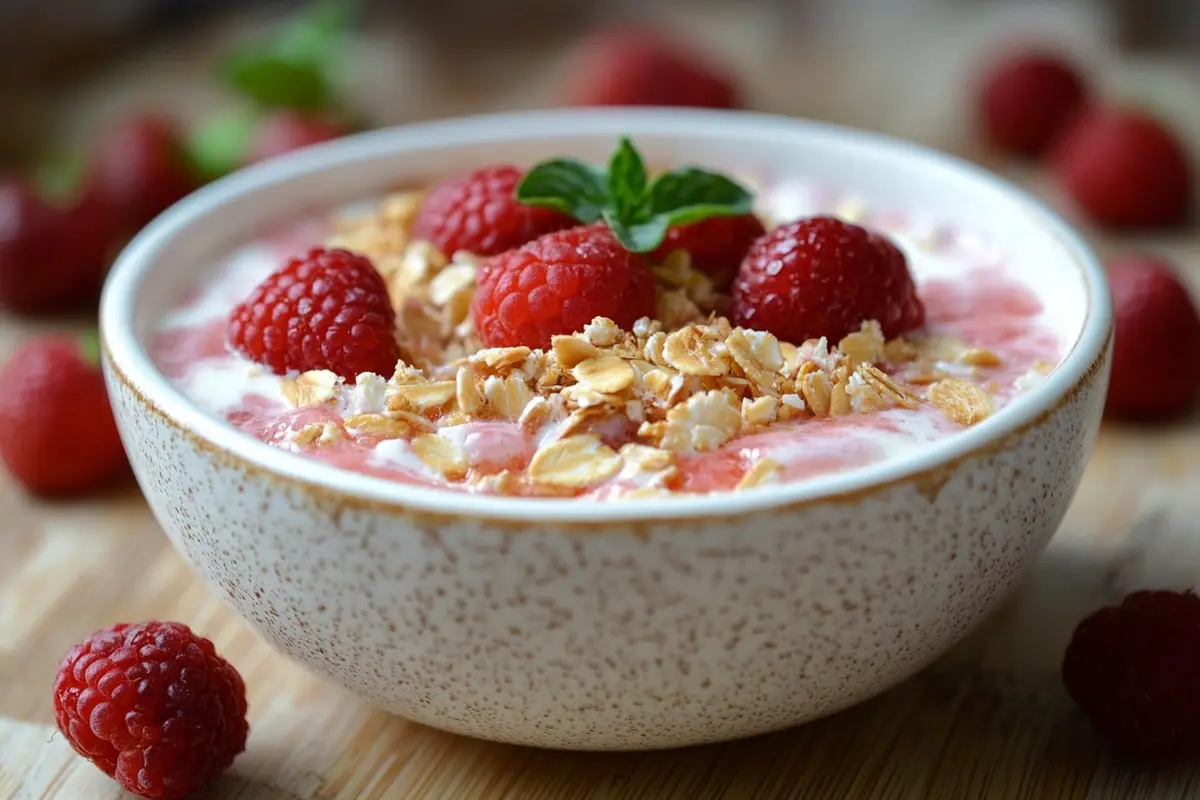
The right number of calories for breakfast depends on your daily needs, weight goals, and how active you are.
Experts say you should aim for 350 to 500 calories in the morning.
But, it's key to adjust this based on your personal health goals.
Studies show that breakfast should be 25% of your total daily calories if you eat three meals and two snacks.
And If you consume more than 2,400 calories a day, you might need 600 calories or more for breakfast to keep your energy up.
Recommended Breakfast Calories | Recommended Breakfast Calories |
|---|---|
1,200 calories | 250-300 calories |
2,400+ calories | 600+ calories |
The Institute of Medicine suggests a balanced breakfast should have 45-65% carbs, 10-35% protein, and 20-35% fats.
This mix helps you get the right breakfast calorie range to support your health and wellness.
Keep in mind, the ideal breakfast calories are different for everyone. It's important to listen to your body and adjust your breakfast to match your energy needs for the day.
Eating a Larger Breakfast vs. Dinner
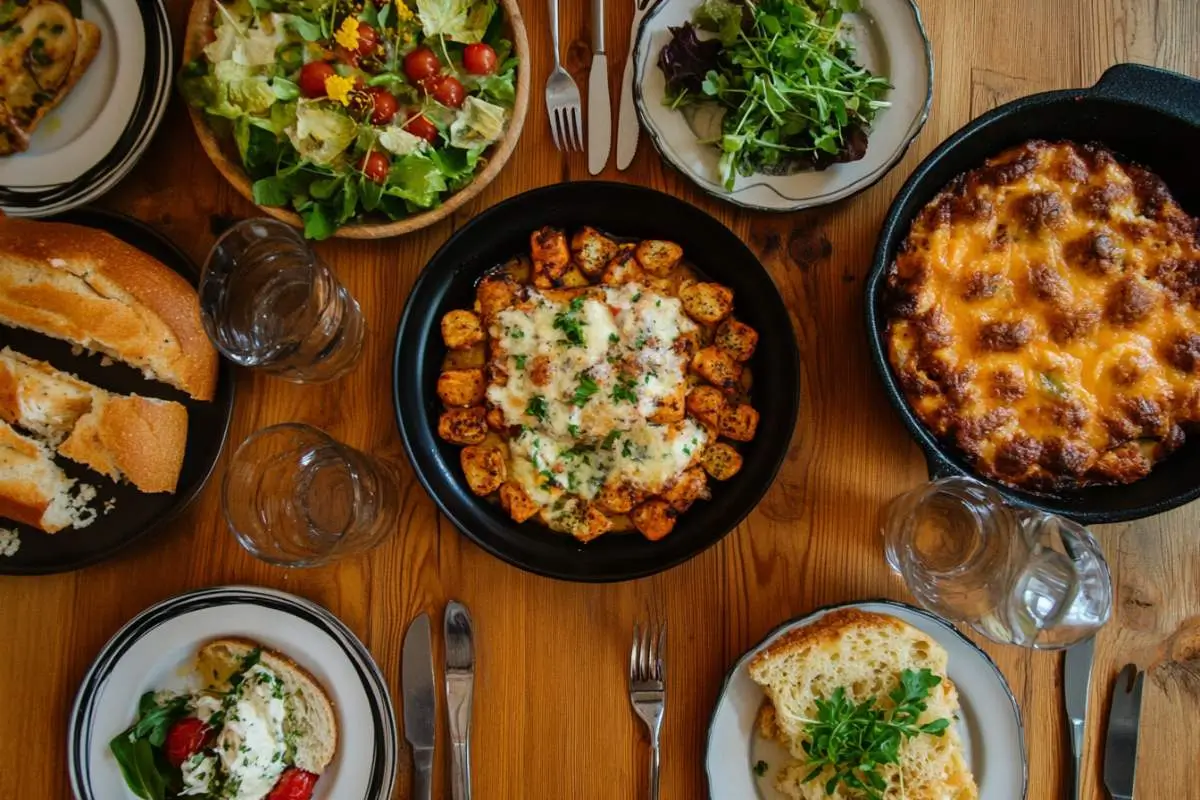
Recent studies show that eating a big breakfast might help with weight management more than a big dinner. They found that a high-calorie breakfast can increase calorie burn all day. This could help with losing or keeping weight.
Potential for Increased Calorie Burn
A U.K. study involved 30 adults who were overweight or obese. They ate either a big breakfast or a big dinner.
Both groups ate about 1,700 calories a day and lost 7 pounds in four weeks.
But, those who ate more in the morning felt less hungry later.
In Israel, a study found better blood sugar levels with a 700-calorie breakfast.
This wasn't seen in the U.K. study. But, metabolism increased more after breakfast than after dinner.
This research suggests that a big breakfast might be better for boosting calorie burn and weight management than a big dinner.
Also, skipping breakfast can lead to more snacking and eating later. Our metabolism works better in the morning because we're more insulin sensitive.
Eating big meals in the morning can help with weight loss, as our metabolism slows down at night.
Customizing Breakfast for Your Lifestyle

Finding the right balance for your personalized breakfast is key. It should match your needs, preferences, and lifestyle.
By considering your daily calorie needs, weight goals, and activity levels, you can create a tailored breakfast. This breakfast will give you the nutrients and energy you need for health and wellness.
Breakfasts don't have to be the same for everyone. Some people need a big breakfast to fuel their day, while others prefer something lighter.
Try different calorie ranges and macronutrient mixes to see what works for you.
The most important thing is to make a personalized breakfast you love. By finding the right tailored breakfast for your breakfast habits, you'll start your day off right. You'll feel healthier and more energized.
"The key to a successful breakfast is finding the right balance that caters to your unique needs and preferences."
The Importance of Nutrient-Dense Choices
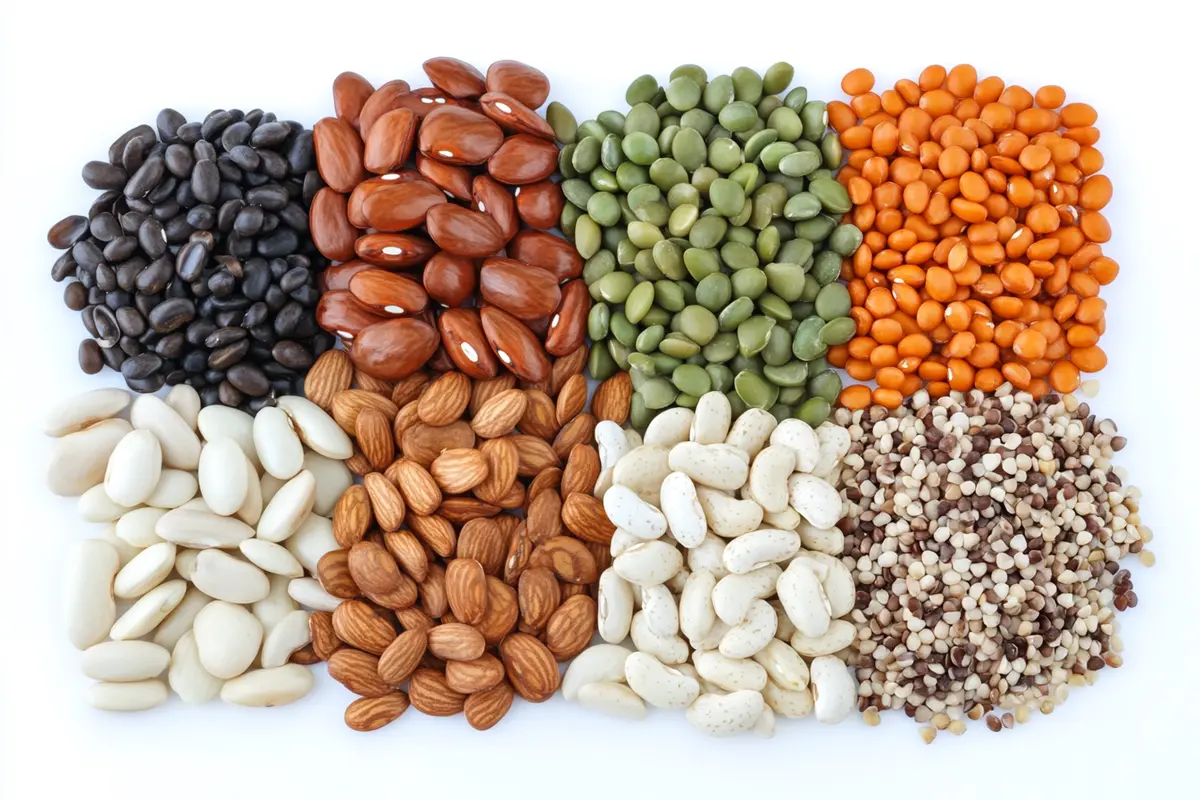
Choosing the right foods for breakfast is key. It’s not just about counting calories but about making those calories count.
Focus on whole, unprocessed foods that are full of vitamins, minerals, fiber, and healthy fats.
These foods give you a big nutritional boost to begin your day.
Make sure to include a variety of breakfast nutrition powerhouses in your diet.
Here are some examples:
These breakfast food quality choices are not only tasty and filling.
They also give you a lot of important nutrients. These nutrients help fuel your body and support your health.
Avoid processed, sugary foods that are often high in calories but low in nutrients.
Female Calorie Needs | Male Calorie Needs | Nutritional Benefits |
|---|---|---|
Grains | Whole wheat, oats, bulgur, cornmeal | loaded with fiber, B vitamins, magnesium, and other essential nutrients that keep you strong. |
Fruits and Vegetables | Broccoli, spinach, carrots, berries, oranges | High in vitamins, minerals, antioxidants, and fiber |
Proteins | Lean meats, poultry, seafood, eggs, beans | They also provide the amino acids you need to support muscle growth and repair. |
Dairy | Yogurt, cheese, milk, fortified soy beverages | Excellent sources of calcium, vitamin D, and other key nutrients |
Healthy Fats | Olive oil, avocado, nuts, seeds | Excellent sources of calcium, vitamin D, and other key nutrients |
By choosing nutrient-rich breakfast options, you can kickstart your day with a nutritional boost.
This will help you feel energized, satisfied, and support your health and wellness goals.
Conclusion
Finding the right calorie count for breakfast is all about you.
It depends on your daily needs, weight goals, and how active you are.
Aiming for 300-500 calories in your breakfast gives your body the energy and nutrients it needs for the day.
Choose foods that are full of nutrients and make your breakfast fit your lifestyle and health goals.
The key takeaways from this article are about the importance of a balanced breakfast. It's also about adding protein and finding a breakfast that meets your dietary needs and weight goals.
Whether you want to lose weight, keep a healthy weight, or just feel more energetic, your breakfast choices matter a lot.
By balancing calories and choosing nutrient-rich foods, you can start your day off right. A healthy breakfast is key to your daily success.
Frequently Asked Questions
Your daily calorie needs depend on several factors. These include your age, gender, weight, height, and how active you are. Your resting metabolic rate and daily activities also play a big role.
For weight loss, aim for a balanced breakfast in the range of 300-500 calories.
Eating breakfast improves your nutrient intake. You get more vitamins, minerals, and fiber. It also boosts your heart health, lowering risks of diabetes, obesity, high blood pressure, and strokes.
To make a nutritious breakfast, balance protein, carbs, and healthy fats. Foods high in protein, complex carbs, and healthy fats keep you full and give lasting energy.
For fewer calories, try a protein smoothie, egg white omelet with veggies, or Greek yogurt with berries. A moderate-calorie breakfast might be a homemade burrito, oatmeal with nut butter, or a veggie-filled frittata. For more calories, consider a loaded smoothie, a three-egg scramble with avocado toast, or a breakfast bowl with quinoa, krill meat, and mixed greens.

